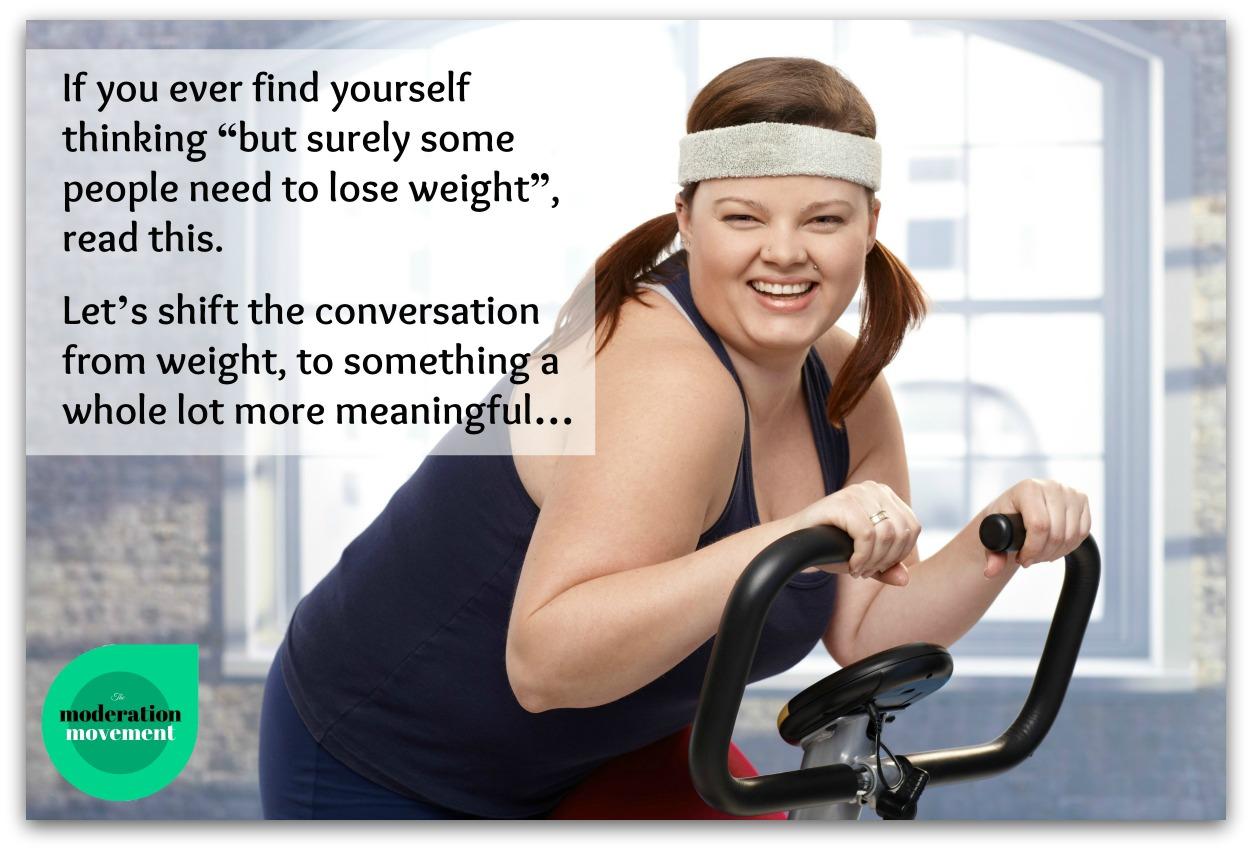“But surely some people need to lose weight?”

If you ever find yourself thinking “but surely some people need to lose weight”, read this.
Meet Jennifer. Jennifer is fat. She struggles to get up stairs and avoids going to the gym because she ashamed of her body. She generally eats well, but has a habit of snacking in the evening whilst watching TV. She is often lonely.
The common wisdom shaped by diet culture and supported by the medical world, is that Jennifer would benefit from losing weight.
But Jennifer does not need to lose weight. Mic drop. For many people, this may seem like a radical statement, so hear me out.
Let’s assume that Jennifer wants to be more active and to be able to climb stairs more easily. She also wants more social connection and to go out more.
What would happen if Jennifer didn’t try to lose weight, but instead focused on moving more (and in ways she enjoys) to increase fitness. Let’s say she joins a dance class or walking group, now she’s also getting out more and making social connections. She finds herself spending less time home alone and snacking.
A large part of what stops Jennifer from being more active and socially connected, is our culture’s weight stigma and bias. We live in a culture that says fat is bad and thin is good. A strong message sent by the diet industry, the fashion industry, the health industry and upheld by friends, family and loved ones, is this idea that we need to lose weight to be more acceptable. By acceptable, I mean healthier, fitter, more attractive, more successful, or a better person.
At this point I should add that Jennifer has tried every diet known to woman, done boot camps, 12 week challenges, you name it. She lost weight with each, then regained and each of them left her feeling more ashamed about herself. She gave up a few years ago and stopped “trying”. Weight loss clearly wasn’t the answer.
By taking weight out of the equation, we give people a chance to focus on health behaviours and feel better in the body they have right now, both physically and emotionally. The research shows that when people feel better about themselves they are more likely to continue to engage in healthy behaviours.
I am not even going to mention whether Jennifer lost weight once she started being more active and more socially connected. The point is that Jennifer’s health improved, she could climb stairs easily, she felt strong and fit, she was more connected to her community and she felt good within herself. How much she weighs is a moot point.
I am hyper aware that I am writing this as a thin woman and I do not know what it is like to be fat. However, Jennifer could be one of my clients and therefore I have the experience through their eyes of the effect of weight stigma on people of larger size.
I would also like to acknowledge that thin people also experience lack of fitness, issues with eating and social isolation. Finally, I am not anti-weight loss, if weight loss occurs with changes to health behaviours, then that’s what is meant to be for that individual. I also believe a person has the right to focus on weight loss if they want to, what I am against is the blanket advice of weight loss as a means to improve health, because in the vast majority of cases it doesn’t. If you would like to understand more about this, you can access many references here lovewhatyoueat.com.au/the-non-diet-approach-research/
If you would like to help shift the conversation from weight, to something that may actually promote health, please share this.
